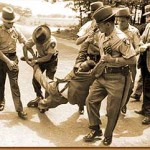 Are you for or against the protection of our civil rights? If you support gun control, than you oppose civil rights. Yes, the Second Amendment is a civil right. Long before the Second Amendment was held to be a fundamental right in District of Columbia v. Heller, state and federal courts considered the right to bear arms a civil right – as far back as 1871:
Are you for or against the protection of our civil rights? If you support gun control, than you oppose civil rights. Yes, the Second Amendment is a civil right. Long before the Second Amendment was held to be a fundamental right in District of Columbia v. Heller, state and federal courts considered the right to bear arms a civil right – as far back as 1871:
Ferguson v. Perry, 292 Ga. 666, 740 S.E.2d 598 (2013), noted: “this Court and other courts have said that the right to possess firearms is indeed a “civil right.” See, e.g., Smith v. State, 287 Ga. 391, 398 (697 SE2d 177) (2010) (noting that a criminal conviction may impact the defendant’s “civil rights, such as the right to vote or possess firearms”); United States v. Stone, 139 F3d 822, 831 (11th Cir. 1998) (explaining that felony convictions “‘carry disabilities’” including the deprivation of “‘civil rights as important as the right to vote, the right to keep and bear arms, and the right to engage in a chosen business or profession’” (quoting United States v. Sharp, 12 F3d 605, 608 (6th Cir.1993)).”
State courts, interpreting state guarantees to arms, also hold that the right to possess a firearm is a civil right. State v. Trower, 629 N.W.2d 594 (S.D. 2001); Williams v. State, 402 So.2d 78, 79 (Fla. App. 1981); Andrews v. State, 50 Tenn. 165, 182, 8 Am.Rep. 8, 16 (1871).
Since Heller, there has been a rejuvination of the civil rights movement in the form of litigation challenging existing gun laws in support of our rights and a vast wave of new gun laws spreading throughout the country attempting to strip us of our civil rights. One key difference, at this point, is verascity with which the new civil rights movement will fight for their right. Two Democratic lawmakers in Colorado, including the president of the state Senate, were recalled in elections brought about by their support for tougher gun control laws, proving that civil right supporters can show up in droves at the polling booths. But, there has been no large scale mass protests, no marches on the capital on the scale of the 1960’s marches, and no civil disobedience? It has been, perhaps, the most peaceful movement civil rights history – focusing primarily on litigation, public comments to their legislators, and lobbying efforts. Is it enough? In states like Colorado, sure. In states like California, which faces an onslaught of bills attacking it’s citizens’ civil rights, only time will tell. There, Governor Brown, who has claimed to be an advocate of civil rights, has the opportunity to veto these attacks and preserve the integrity of the system. If he does not, however, the most comprehensive attack on our civil rights in years will become law – paving the way for more costly litigation and, if history proves anything about deprivation of rights, an expansion of the civil rights movement.